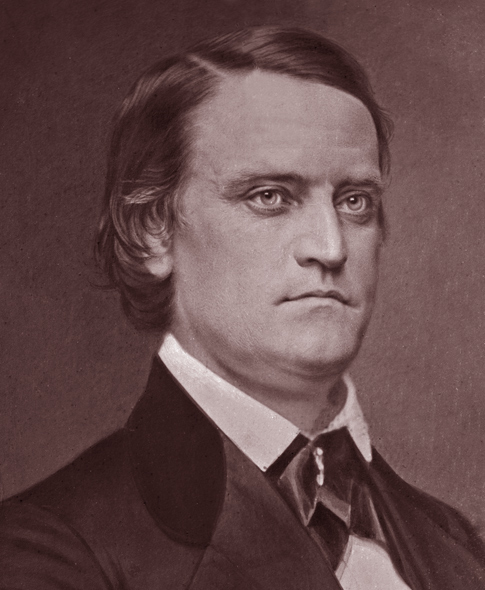 After southern Democratic delegates in Baltimore, Maryland refused to accept Senator Stephen Douglas as a candidate for the election of 1860, they nominated Vice President John C. Breckinridge on June 23, 1860. Soon after Breckinridge’s campaign biography was published, which one can read online at archive.org. Some editors saw Breckinridge’s campaign and, in particular his supporters, as a serious threat to the Union. The Lowell (MA) Citizen & News, which supported the Republican party, warned that the group’s ultimate goal was secession. “There [were] many prominent southern supporters of Breckinridge and Lane who go for that ticket …[because it] will be most likely to achieve…a dissolution of the Union,” the Citizen & News argued. Southern newspapers like the Charlestown (VA) Free Press, which supported the Constitutional Union party, reached a similar conclusion. “No sane man can doubt that a dissolution of the Union is the ultimate object of the Seceders who put up Breckinridge and Lane as their leaders,” as the Free Press concluded. Editors who backed other candidates wanted Breckinridge to explain what actions he would recommend in the event of a Republican victory in November 1860. After a speech in Lexington, Kentucky, the Richmond (VA) Whig noted that “[Breckinridge] did not say, nor did he dare say, what course he would advise the Seceding and Disunion party…to take in case a Black Republican President” win the election. The (Jackson) Mississippian, however, used the same speech to reach the opposite conclusion. “It [was] a great speech, perfectly overwhelming in its refutation of the charges…of ‘disunion,’” as the Mississippian explained. (The full text of Breckinridge’s speech is available in an articled published on the New York Times’ website). Breckinridge, as the Mississippian argued, “had always been the able and faithful champion of ‘the Union, the Constitution, and the equality of the States.’” Breckinridge attempted to bridge the sectional divide after Lincoln’s victory in November 1860, but twelve months after the election he joined the Confederate army as a brigadier general.
After southern Democratic delegates in Baltimore, Maryland refused to accept Senator Stephen Douglas as a candidate for the election of 1860, they nominated Vice President John C. Breckinridge on June 23, 1860. Soon after Breckinridge’s campaign biography was published, which one can read online at archive.org. Some editors saw Breckinridge’s campaign and, in particular his supporters, as a serious threat to the Union. The Lowell (MA) Citizen & News, which supported the Republican party, warned that the group’s ultimate goal was secession. “There [were] many prominent southern supporters of Breckinridge and Lane who go for that ticket …[because it] will be most likely to achieve…a dissolution of the Union,” the Citizen & News argued. Southern newspapers like the Charlestown (VA) Free Press, which supported the Constitutional Union party, reached a similar conclusion. “No sane man can doubt that a dissolution of the Union is the ultimate object of the Seceders who put up Breckinridge and Lane as their leaders,” as the Free Press concluded. Editors who backed other candidates wanted Breckinridge to explain what actions he would recommend in the event of a Republican victory in November 1860. After a speech in Lexington, Kentucky, the Richmond (VA) Whig noted that “[Breckinridge] did not say, nor did he dare say, what course he would advise the Seceding and Disunion party…to take in case a Black Republican President” win the election. The (Jackson) Mississippian, however, used the same speech to reach the opposite conclusion. “It [was] a great speech, perfectly overwhelming in its refutation of the charges…of ‘disunion,’” as the Mississippian explained. (The full text of Breckinridge’s speech is available in an articled published on the New York Times’ website). Breckinridge, as the Mississippian argued, “had always been the able and faithful champion of ‘the Union, the Constitution, and the equality of the States.’” Breckinridge attempted to bridge the sectional divide after Lincoln’s victory in November 1860, but twelve months after the election he joined the Confederate army as a brigadier general.
26
Jul
10








Related Articles
No user responded in this post
Leave A Reply
Please Note: Comment moderation maybe active so there is no need to resubmit your comments